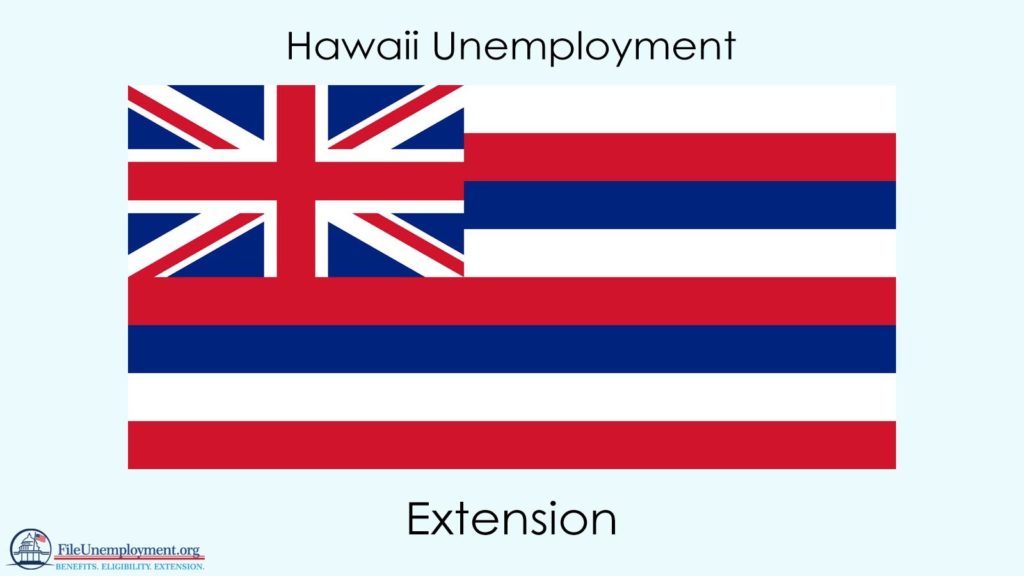Hawaii’s unemployment insurance program will sometimes participate in federal extended benefits programs to provide extra unemployment benefits to unemployed workers who have depleted their regular UI benefits. These programs are usually implemented during high unemployment or during times of extreme economic uncertainty (like a pandemic).
The state will also sometimes offer additional benefits to areas hit by natural or manmade disasters.
Are Extended Benefits currently available in Hawaii?
Currently, Hawaii does not offer any Extended Benefit programs. Unemployed workers applying for UI benefits are currently eligible for 26 weeks of benefits.
Hawaii Additional Compensation Unemployment Law
Hawaii’s Additional Unemployment Compensation Law offers a maximum of 13 weeks of benefits to individuals residing in a specified county who are unemployed due to a natural or man-made disaster. This law goes into effect once the disaster is declared by the governor, and there is no waiting period.
Hawaii’s Additional Unemployment Compensation Law caters to claimants who have depleted their regular UI benefits, those who do not qualify for Unemployment Insurance based on monetary reasons, and self-employed workers whose joblessness was approximately caused by the disaster.
Hawaii Extended Benefits (EB) Program
The Extended Benefits program is a federally funded, state-run initiative that offers an extra 13 weeks of UI benefits to employees who have depleted their regular unemployment insurance benefits during times of elevated unemployment.
The Extended Benefits program is triggered in Hawaii when the insured unemployment rate (IUR) over the preceding 13 weeks is at least 5%, and is 120% of the average rate for the same 13-week duration in the previous two years.
When the insured unemployment rate drops below 5% or the IUR rate is less than 120% than the same 13-week period in the previous two years, then the Extended Benefit program ends and Hawaii returns to its regular 26 weeks of UI benefits.
Hawaii Disaster Unemployment Assistance
The Disaster Unemployment Assistance (DUA) program offers monetary aid to people who lose their jobs or are unable to work due to a major disaster. In order for DUA benefits to kick in, the disaster must be declared by the President of the United States.
The program is administered by the U.S. Department of Labor in collaboration with the Federal Emergency Management Agency (FEMA). The funds are provided to state agencies responsible for unemployment benefits. This program is exclusively for employees who are not qualified for standard unemployment benefits.
Trade Adjustment Assistance
The Trade Adjustment Assistance program is a federal initiative instituted by the amended Trade Act of 1974. It extends assistance to employees who suffer a job loss or wage reductions due to competition from imported goods.
CARES Act and American Rescue Plan
To address the impacts of the Coronavirus pandemic and its associated economic aftermath, U.S. Congress enacted two bills: the Coronavirus Aid, Relief, and Economic Security (CARES) Act in March 2020 and the American Rescue Plan Act (ARPA) in March 2021.
These bills established several unemployment benefit programs, including:
Federal Pandemic Unemployment Assistance
Pandemic Unemployment Assistance (PUA benefits) extended unemployment eligibility to job seekers who would not normally qualify for benefits. This included self-employed people, gig workers, freelancers, and independent contractors.
Pandemic Emergency Unemployment Compensation
The Pandemic Emergency Unemployment Compensation (PEUC benefits) program provided 13 weeks of additional unemployment benefits to those who had already exhausted their regular benefits.
Federal Pandemic Unemployment Compensation
Under the FPUC program, qualified residents in Hawaii received $600 per week as a supplementary payment, in addition to the weekly benefit paid by other unemployment compensation programs.
Mixed Earnings Unemployment Compensation
MEUC benefits were paid to individuals who earned a net income of at least $5,000 through self-employment work, in addition to their regular W-2 wages—provided they applied and qualified for Hawaii unemployment benefits. Individuals receiving Pandemic Unemployment Assistance (PUA) were not qualified to receive MEUC.
Hawaii’s participation in these programs ended when they expired on September 6, 2021.






Comments are closed.